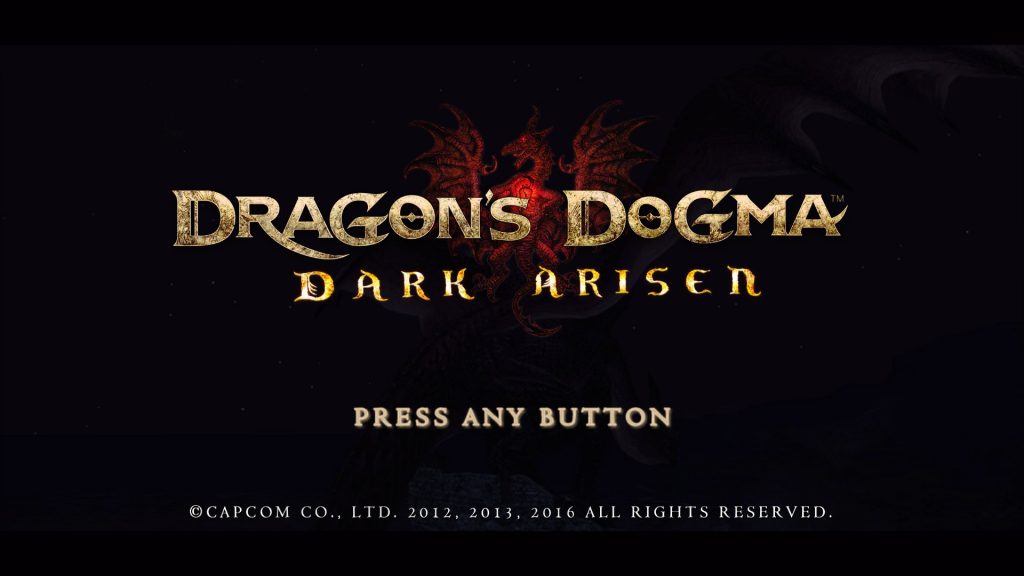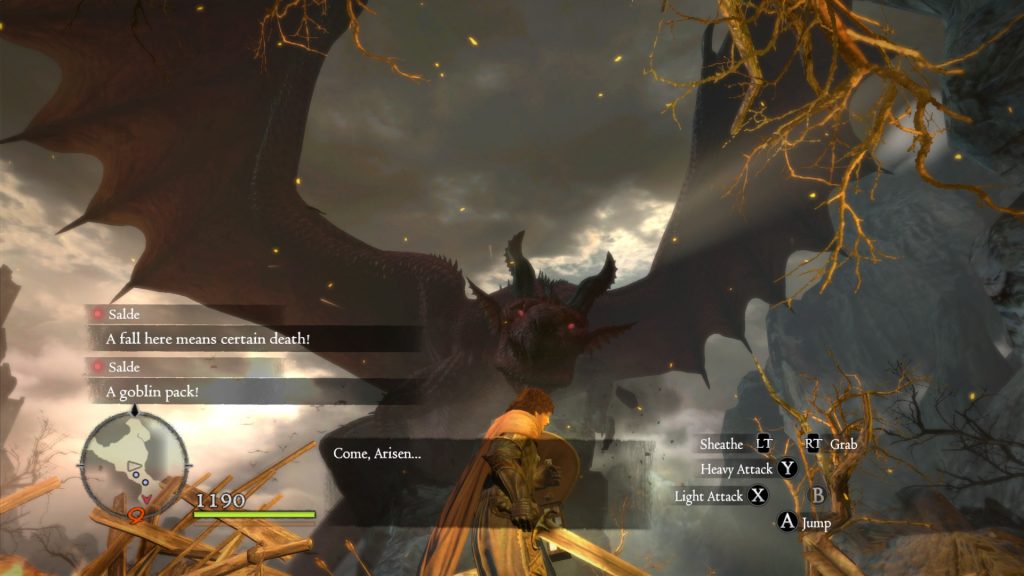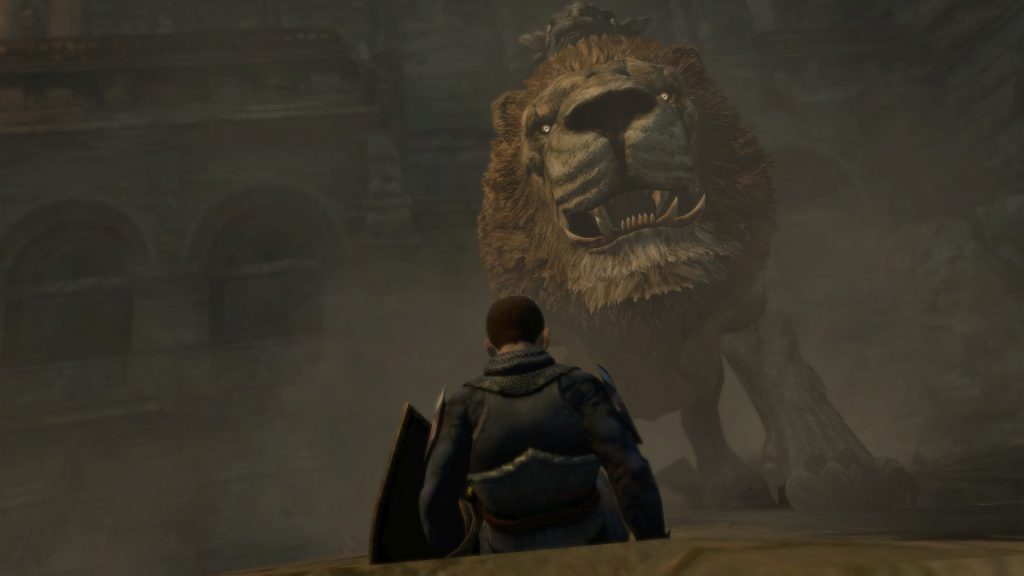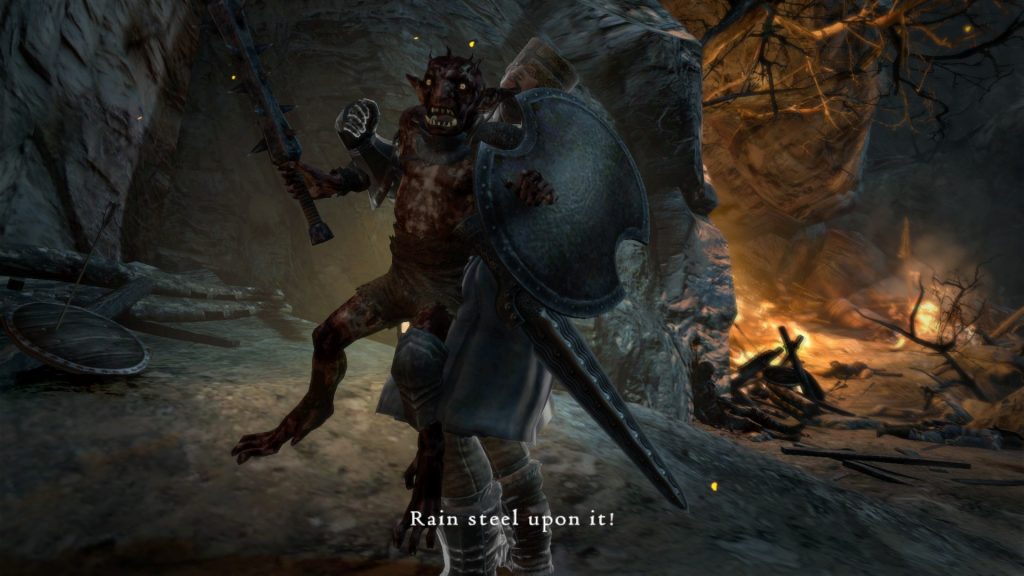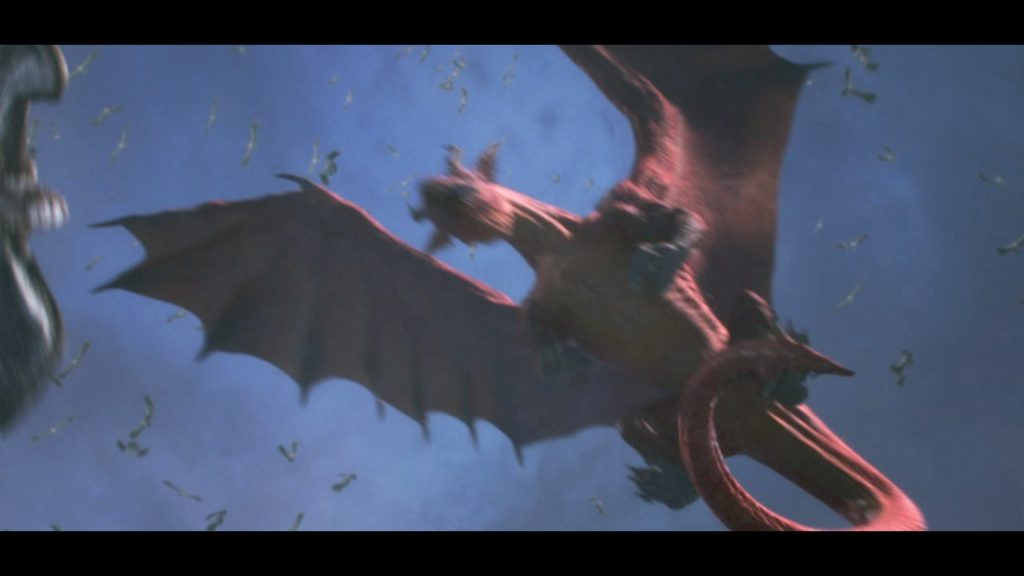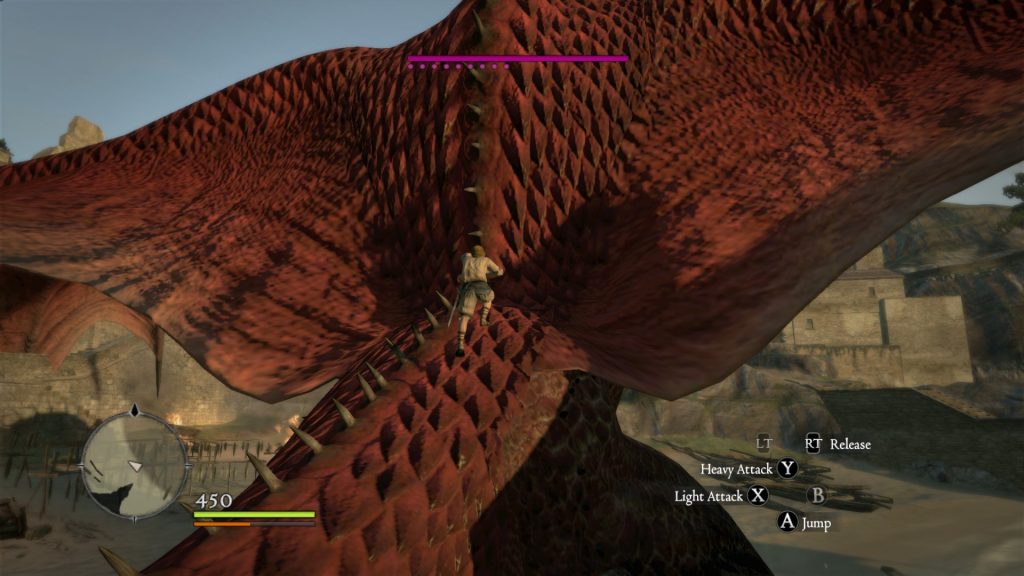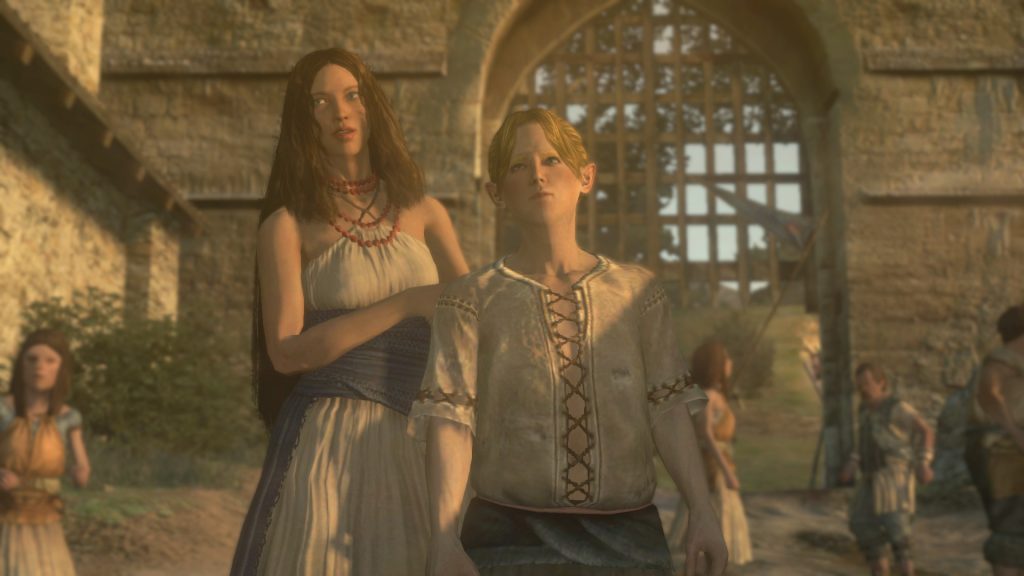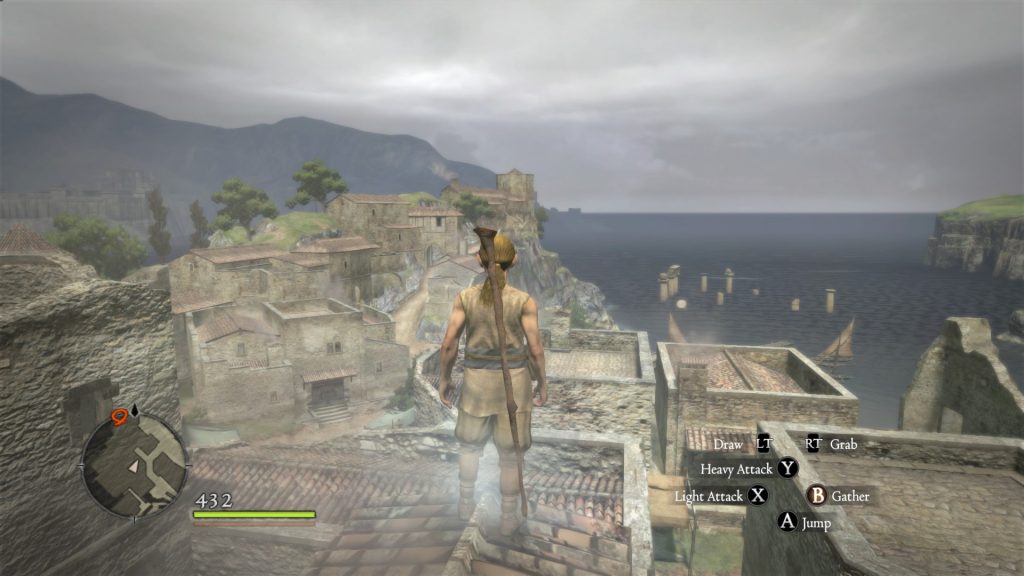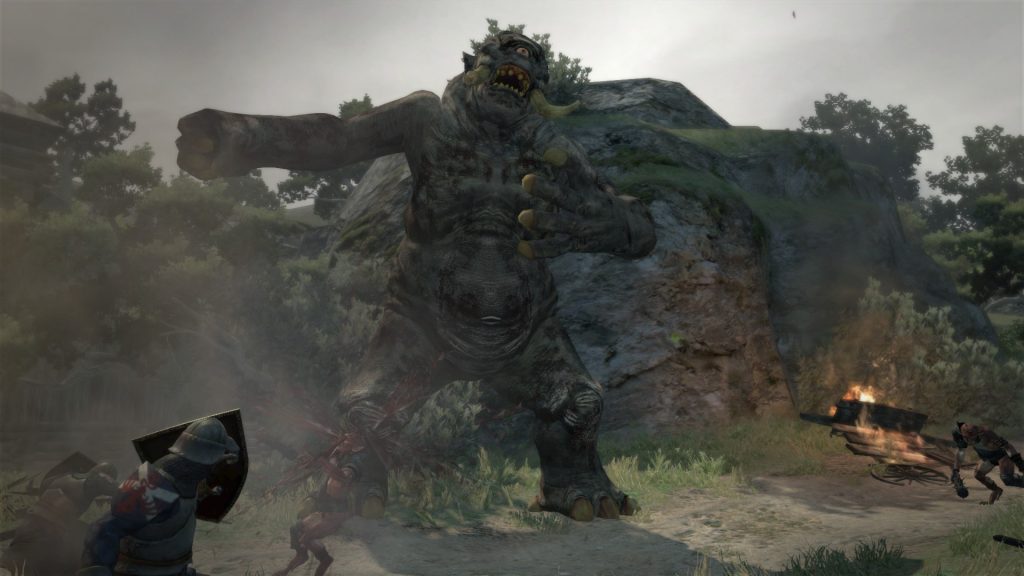So, this is the game that From Software was so afraid of that they rushed the release of the original Dark Souls, huh? I can see why…
Fantasy RPGs are sometimes a dangerous bag. Buy enough and you’ll start picking up on cheap stereotypes, repeated tropes and pointless filler in many of the titles. Dragon’s Dogma is a reminder of what a fantasy RPG should be. It is a tale that says “Sure, you can have your stats, your party members and your level grind… but why not make that fun?” It reasons, “Walking around the town and talking to NPCs is good because it develops the world and gives the player something to do, but why not remove the annoying bits?” It concludes, “Being able to jump off ledges and climb walls is a good part of any game, whether you play as an assassin or not… so why not add it to our game?” Dragon’s Dogma just feels like an RPG from Japan done right.
So let’s address the elephant in the room–is this a Dark Souls clone and how justified was From Software in viewing DD as a threat? Well, there are a couple similarities. In DD, you play as the “Arisen,” a person whose heart was consumed by a dragon, died and yet still lives. They are identified by a large scar on their chest that causes them to hear the call of the dragon. Conceptually, this is very similar to those with the Dark Sign or those that are rekindled from DS, but I think its worth noting that being able to hear the voice of a dragon is also similar to Dragon Age. Likewise, DD has you swinging swords in Medieval European fashion at giant monsters just like DS… but also once again, while this is similar in theme it’s also not unique to DS. Lastly, you can connect online to summon warriors to aid you in battle, which sounds a lot like summoning allies in DS from different worlds. As you will see though, while a lot of DD sounds like DS, it’s completely different mechanically which in turn makes it its own game.
So yes, you are an “Arisen.” However, in DS being an Undead/Ashen One was a huge impact mechanically on the game. For one, you’re immortal (more or less). If you die, you end up at the bonfire and then go do a corpse run to get your souls back. In DD, being Arisen is a plot device but not a mechanical device. If you die in DD, you just die. There’s no respawn. Apparently the “arisen” part of being Arisen just means you got to come back that one time. Next, while visually the two games may be comparable, the way you fight is completely different. DS is a game of careful stamina management, poise regulation and a lot of rolling. DD is a game where you can swing your weapons and attack as much as you want (with light attacks) with stamina only being drained for specialized actions and even then it drains very slowly. Fighting is also more dynamic in DD, with the ability to climb up and on larger monsters as well as pick up the smaller ones, whereupon you can either hold them to allow an ally to pummel them or you can toss them into a wall.
Lastly, the allies work completely differently in DD. For starters, you can have several allies at once, whereas in vanilla DS you were limited to just one. Secondly, your allies aren’t actually human players, they are shells known as “Pawns.” These Pawns are AI controlled and while several will join your party that are prebuilt into the game, the intended feature of the system is that you go online and download other player’s Pawns to help you out. This allows friends who are playing the game to borrow the party members of each other, say if they need a specific character build for a quest that they are having trouble with, but they don’t want to spend the time to level up another ally. This leads to a lot more party-based combat which is a nice change to the mostly lonely journey of DS.
So, while DD may seem like DS, the games are not quite as similar as some may think. If you like one it is certainly not a guarantee that you’ll like the other. It probably didn’t hurt From Software to release DS before DD but I’m not sure that DS would have been harmed that much by a more relaxed release. Then again, who knows–if they hadn’t, perhaps we would live in a world where Dragon’s Dogma III had just come out and Dark Souls was a one-off game with a cult following (I don’t think it would but I won’t deny the possibility). That being said, what other content does DD have?
Well, the character creation is nice. Assets load quickly and there is a generous amount of customization. I’m always happy to see a game where I can make myself a child as well, which is incredibly uncommon (although the more games I review the more I seem to stumble onto it). Going with the closest look I could get to Chezni, I felt moderately satisfied with the end product. Playing as a child dynamically changes the tone, mood and implications of many of the game’s scenes. The game opens up with two children playing, who you are probably supposed to assume are your children. Now though, they are merely Chezni’s playmates. There’s a young woman who is obviously supposed to be the main squeeze of the assumed male character that would play the game, but now she’s Chezni’s single mother. It’s just nice to be able to play as a kid in a game that isn’t garbage like so many other (largely JRPG or anime) games are where you do.
Movement in this game is fantastic. In towns you don’t lose stamina which means infinite sprinting and man, your character books it. This makes travel much less of a chore and oddly fun as you zoom around from one place to another. Suddenly I don’t feel frustrated or trapped as I dash around the starting village and I actually felt comfortable with talking to a few of the NPCs since I wasn’t feeling like my time was being wasted. To make matters even better, you can leap off any edge, climb on any building, pull yourself up ledges and otherwise explore in any way you want. Keep in mind, we’re not talking Assassin’s Creed levels of “I can climb on anything” sort of climbing, but the environments have been designed to allow you to pretty much get anywhere through one means or another.
I actually had to pry myself away from this one to write this review–I just wanted to keep playing, which is probably a good sign for the game. I’m putting it into Tier 1. I’ve heard that the game can get a bit grindy later on but I think I’m ok with that for one simple reason. The title “Dragon’s Dogma” doesn’t contain the word “Final” or “Fantasy.”
